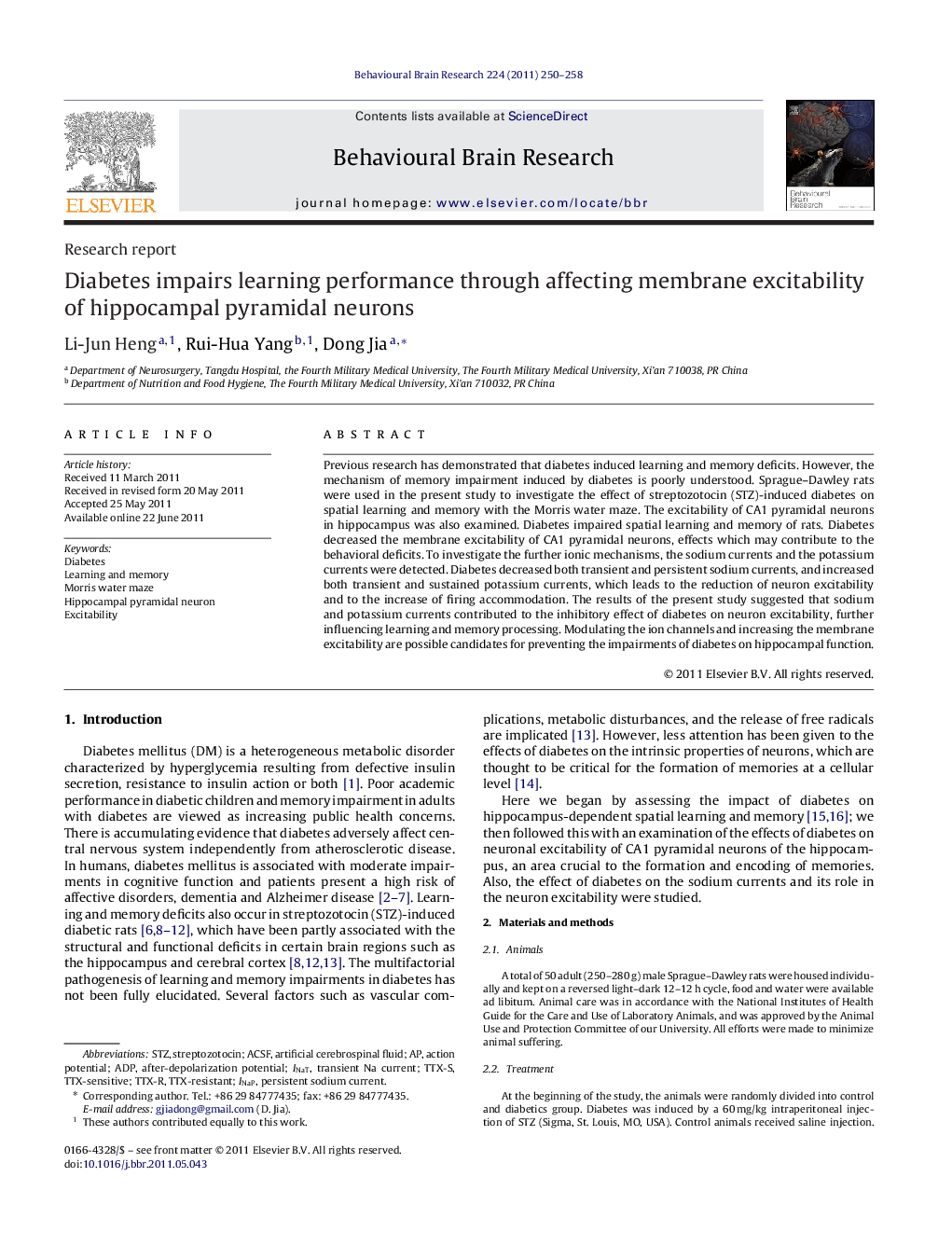| Article ID | Journal | Published Year | Pages | File Type |
|---|---|---|---|---|
| 4313644 | Behavioural Brain Research | 2011 | 9 Pages |
Previous research has demonstrated that diabetes induced learning and memory deficits. However, the mechanism of memory impairment induced by diabetes is poorly understood. Sprague–Dawley rats were used in the present study to investigate the effect of streptozotocin (STZ)-induced diabetes on spatial learning and memory with the Morris water maze. The excitability of CA1 pyramidal neurons in hippocampus was also examined. Diabetes impaired spatial learning and memory of rats. Diabetes decreased the membrane excitability of CA1 pyramidal neurons, effects which may contribute to the behavioral deficits. To investigate the further ionic mechanisms, the sodium currents and the potassium currents were detected. Diabetes decreased both transient and persistent sodium currents, and increased both transient and sustained potassium currents, which leads to the reduction of neuron excitability and to the increase of firing accommodation. The results of the present study suggested that sodium and potassium currents contributed to the inhibitory effect of diabetes on neuron excitability, further influencing learning and memory processing. Modulating the ion channels and increasing the membrane excitability are possible candidates for preventing the impairments of diabetes on hippocampal function.
• Diabetes impaired spatial learning and memory of rats. • Diabetes decreased the sodium currents and increased the potassium currents, which contributed to the inhibitory effect of diabetes on neuron excitability, further influencing the learning and memory processing. • Modulating the ion channels and increasing the membrane excitability are possible candidates for preventing the impairments of diabetes on hippocampal function.
